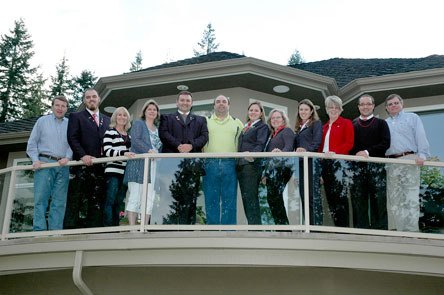MARYSVILLE — The Marysville Rotary gave five young professionals from Brazil a chance to get a firsthand look at how their American counterparts live and work.
From May 3-7, five Marysville Rotary families hosted a telecommunications engineer, a psychologist, a political science student, a forest economist and an international trade consultant in their homes as part of the Rotary’s Group Study Exchange. While all but one of the Brazilian professionals had visited America before, none of them had ever visited the Pacific Northwest before.
“America is very big,” said Marcelo Persicotti, GSE team leader for the group and a member of Rotary District 4730 in Brazil, which conducted the exchange with the local Rotary District 5050. “The culture of your east side is not the same as that of your west side. New York is definitely not Marysville.”
Persicotti, the telecommunications engineer, has enjoyed the exchange of business management practices he’s been able to make with Rotarians in Washington state and Canada, as part of their month-long tour through District 5050. He also found it enlightening to see how the needs of telecommunications users in America differ from those in Brazil.
“Rotary is one big family, and the more people you know around the world, the bigger that family becomes,” Persicotti said. “Our cultures are very similar, but just different enough to spark off new ideas for projects. I’d like to develop the partnership between our two districts further.
Marysville Rotary Club President Larry Trivett, who served as one of the GSE hosts, credited at least 20 local Rotarians with pitching in to provide transportation and social functions for the GSE team to take part in. He echoed Persicotti’s assessment that Americans and Brazilians aren’t very different, at the same time that he praised the GSE team members and their culture.
“Their country has a strong economy and manufacturing base, to the point that the recession really hasn’t affected them,” Trivett said. “They’re more energy independent than we are. These are smart, well-educated people on the go. These will be the leaders of their country.”



